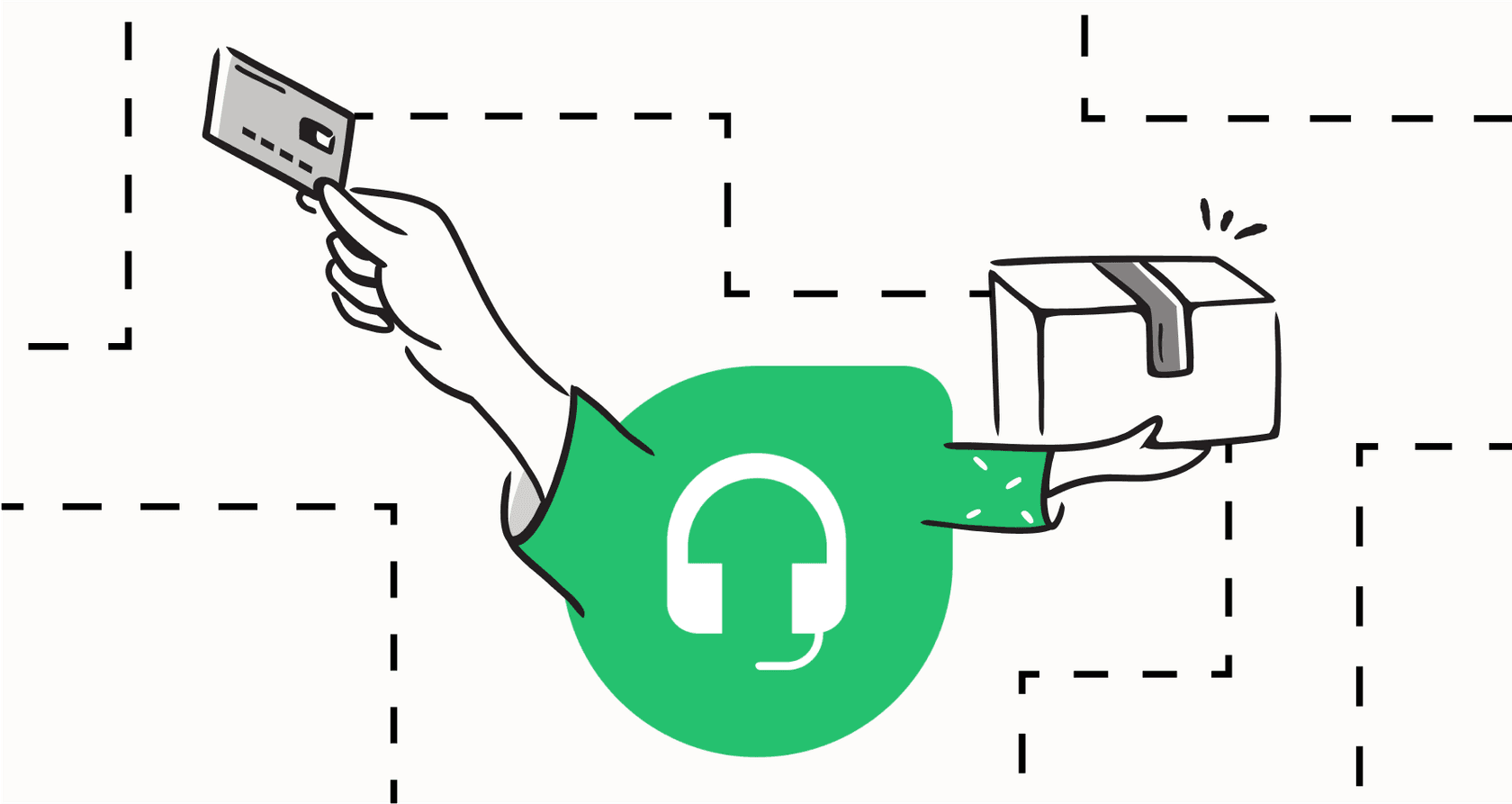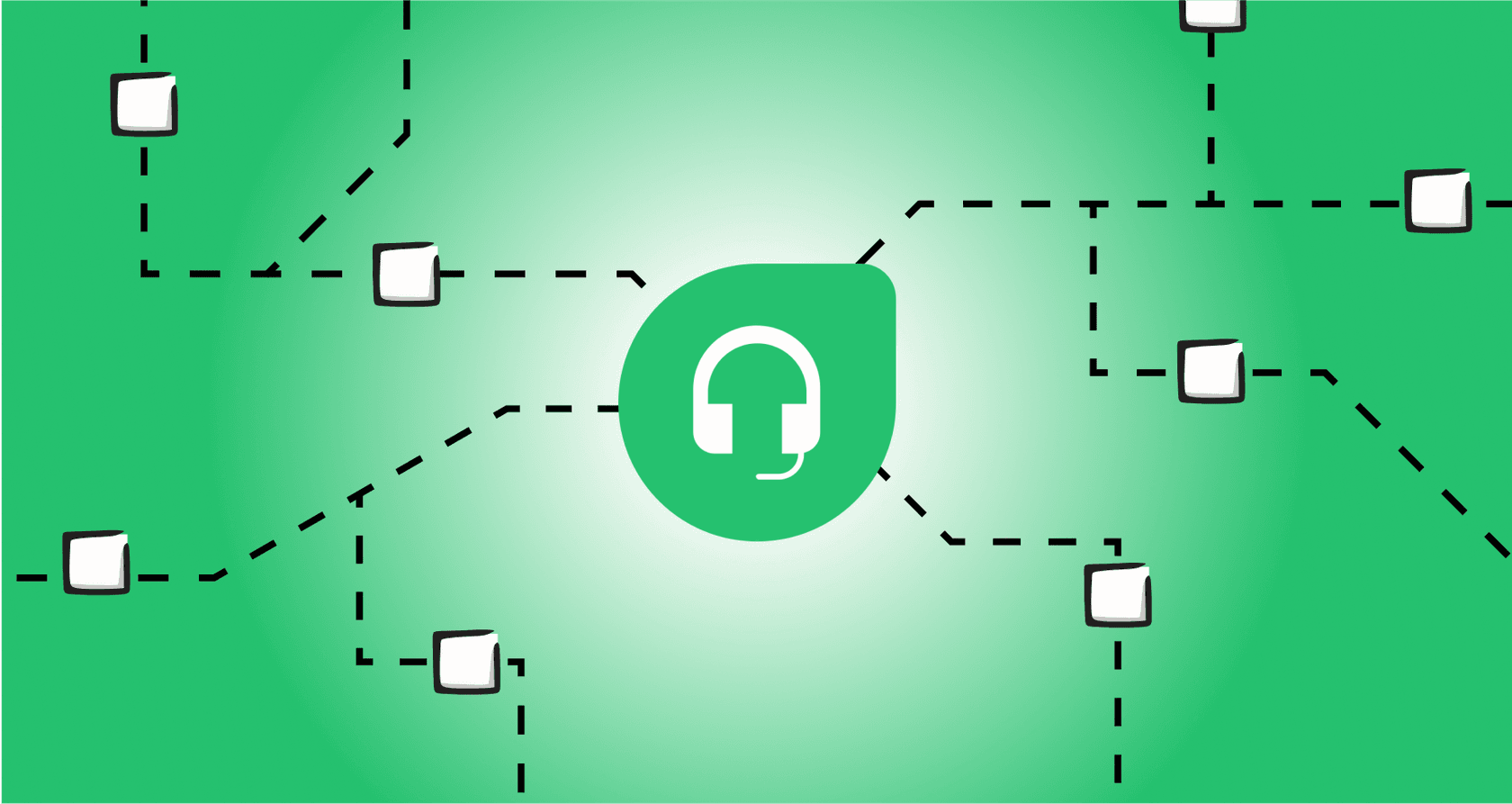A practical guide to Freshdesk ticket assignment rules

Stevia Putri

Stanley Nicholas
Last edited January 16, 2026
Expert Verified

Setting up smart Freshdesk ticket assignment rules is essential for building a fast, efficient support team. When you get it right, tickets get to the right person quickly, workloads stay balanced, and customers feel taken care of. Freshdesk is a mature, reliable platform that powers customer service for thousands of companies, and its automation features are a big reason why.
Freshdesk gives you several effective ways to automate your inbox, from simple rotations to detailed custom rules. In this guide, we'll break down each option: how it works, where it shines, and how to make the most of it. We'll also look at how you can add a smarter, AI-driven layer to your existing setup for even greater efficiency.
What are Freshdesk ticket assignment rules?
Simply put, Freshdesk ticket assignment rules are automatic workflows that send incoming tickets to the right agent or team. By removing the need for manual triage, these rules ensure that your team can focus on resolving issues rather than organizing them. These rules work instantly based on conditions you set.
This saves a significant amount of time, reduces the chance of human error, and helps customers get replies much faster. Whether you want to distribute tickets evenly or send them to a specific team based on the customer's language, Freshdesk provides the tools to make it happen.
Think of these rules as the traffic controller for your support inbox. When they're set up well, every ticket goes to the person best equipped to solve it, resulting in faster resolutions and a more organized workflow for everyone.
Key methods for Freshdesk ticket assignment
Freshdesk offers a robust set of tools for automating ticket assignment. They range from convenient built-in settings to flexible, custom-built workflows. Let's look at each one.
Standard automatic assignment
Inside Freshdesk, you'll find three built-in methods for automatically assigning tickets within a group. You can access these settings under Admin > Team > Groups.
Round-robin ticket assignment
This is a classic and reliable option. It hands out tickets to available agents one by one in a rotation. If you have Agents A, B, and C, the first ticket goes to A, the second to B, and so on. The main benefit is that it guarantees a perfectly even distribution, which keeps the workload fair across the team and ensures every agent stays involved.
Load-balanced ticket assignment
This method is designed to manage agent bandwidth by giving the next ticket to the person with the fewest open tickets. This is an excellent way to prevent any one agent from being overwhelmed, keeping everyone's queue at a manageable level and ensuring a steady flow of support.
Skill-based ticket assignment
This is a sophisticated option that routes tickets based on specific expertise. For a deep dive into this feature, check out our detailed guide on skill-based routing. You can define 'skills' (such as 'Billing,' 'Technical Support,' or specific languages) and assign them to your agents. When a ticket matches a skill, it is automatically directed to an expert in that area. This ensures that customers get high-quality answers right away, leading to higher satisfaction. While this requires some initial setup to define skills and tag agents, it creates a highly professional and expert-led support environment.
While skill-based routing is a powerful tool, you can also use AI to enhance this process. For example, tools like eesel AI can learn from an agent's past resolutions to assist in routing, working alongside Freshdesk to make your expert routing even more precise.
Creating your own rules with automation
For teams that need more granular control, you can build your own workflows using Freshdesk's automation engine (Admin > Workflows > Automations). These rules are highly flexible and trigger the moment a ticket is created.
You can create rules such as:
-
Keyword-based: If a ticket contains "billing" or "payment," it can be sent directly to your finance specialists.
-
Customer-based: Tickets from VIP or long-term customers can be assigned directly to dedicated account managers.
-
Priority-based: Urgent tickets can be automatically escalated to Tier 2 support, ensuring your most critical issues get immediate attention.
Considerations for custom rules
Building custom rules gives you immense power to tailor Freshdesk to your specific business needs. As your support volume grows, it's a good practice to periodically review your rules to keep them streamlined. While keyword rules are excellent for direct matching, they work best when combined with a broader understanding of customer intent.
This is where AI triage can be a great addition. Instead of only relying on keywords, a tool like eesel AI's AI Triage can help understand the context of a message, complementing your Freshdesk rules to catch nuanced requests and making your routing even more reliable.
How Freshdesk pricing plans affect assignment rules
Freshdesk offers tiered plans to match different team sizes and needs, ensuring that you only pay for the features that bring value to your organization.
Here is a look at the assignment features available in each plan:
| Feature | Growth ($15/agent/mo) | Pro ($49/agent/mo) | Enterprise ($79/agent/mo) |
|---|---|---|---|
| Ticket Creation Automation | ✅ | ✅ | ✅ |
| Round-Robin Assignment | ❌ | ✅ | ✅ |
| Load-Balanced Assignment | ❌ | ✅ | ✅ |
| Skill-Based Assignment | ❌ | ❌ | ✅ |
| Freddy AI Copilot | ❌ | Add-on ($29/agent/mo) | Add-on ($29/agent/mo) |
Freshdesk's pricing reflects the depth of its ecosystem. For teams looking for advanced AI capabilities, the Freddy AI Copilot is a premium add-on that brings powerful automation and insights directly into the platform.
Moving beyond rules to a smarter system
Freshdesk's rule-based systems provide a fantastic foundation for any support team. To take your efficiency to the next level, you can introduce AI to handle ticket assignment with a deeper understanding of human conversation.
Tools like eesel AI are designed to be complementary, connecting directly with Freshdesk to enhance its existing capabilities.
Here is how an AI-enhanced approach can support your workflow:
-
It learns from your history. eesel AI can analyze your team's past resolutions to help identify which agents are best suited for certain topics, supporting your skill-based routing efforts.
-
It understands context. AI can interpret the tone and intent behind a customer's message, helping your rules work more effectively for complex or unusual requests.
-
You can test with confidence. You can run simulations on historical tickets to see how the AI handles assignments before it goes live, ensuring a smooth transition.
-
You stay in control. You can use a simple workflow builder to decide exactly which tickets the AI should help with, keeping the human touch where it matters most.
Here is a side-by-side look at how these approaches work together:
| Aspect | Freshdesk's native rules | An AI approach with eesel AI |
|---|---|---|
| How it's set up | You define specific logic to suit your business needs. | It learns from your team's historical support data. |
| How it works | Follows clear, rule-based criteria that you define. | Understands the context and intent of each message. |
| Upkeep | Offers consistent, manual control over your routing logic. | Adapts and learns over time to support your growth. |
| Going live | Rules are active as soon as you configure them. | Allows you to run simulations to verify accuracy first. |
| Integration | Core, built-in functionality of the platform. | A seamless integration that adds a layer of intelligence. |
Finding the right strategy for your team
Choosing the right strategy for ticket assignment is a key part of running a successful support operation. Freshdesk ticket assignment rules - like round-robin, load-balanced, and custom automations - are powerful tools that provide the structure and reliability that professional teams need.
As your team continues to grow, you can further enhance these capabilities with AI-powered automation. By integrating a tool like eesel AI with your Freshdesk account, you can build a more intelligent, self-learning system that supports your agents. This allows your team to continue using the platform they trust while gaining a sophisticated edge that helps them focus on delivering exceptional customer service.
Frequently asked questions
Freshdesk ticket assignment rules are automated workflows that direct incoming support tickets to the appropriate agent or team. They are crucial because they eliminate manual triage, saving time, reducing errors, and ensuring customers receive faster responses.
Freshdesk offers three main types: Round-robin assigns tickets evenly in a rotation, load-balanced sends tickets to agents with the fewest open tickets, and skill-based routes tickets to agents with specific expertise. Each provides a structured way to manage workload distribution and expertise matching.
Custom automation rules let you define specific conditions (e.g., keywords, customer type) to assign tickets to groups or agents. They offer great control over your workflow, allowing you to prioritize high-value customers or direct specific issues to the right specialized teams.
Basic ticket creation automation is available in most plans. However, features like Round-Robin and Load-Balanced assignment are found in the Pro plan, while Skill-Based assignment is a core feature of the Enterprise plan.
AI complements traditional Freshdesk ticket assignment rules by learning from past tickets to understand agent expertise and ticket context. This works alongside your defined rules to provide more accurate routing and adapts to evolving support needs with minimal manual intervention.
Yes, with AI tools like eesel AI, you can often run the system in a simulation mode using your historical tickets. This allows you to safely test the AI's performance and accuracy before fully integrating it into your live Freshdesk workflow, building confidence in its capabilities.
Share this post

Article by
Stevia Putri
Stevia Putri is a marketing generalist at eesel AI, where she helps turn powerful AI tools into stories that resonate. She’s driven by curiosity, clarity, and the human side of technology.




